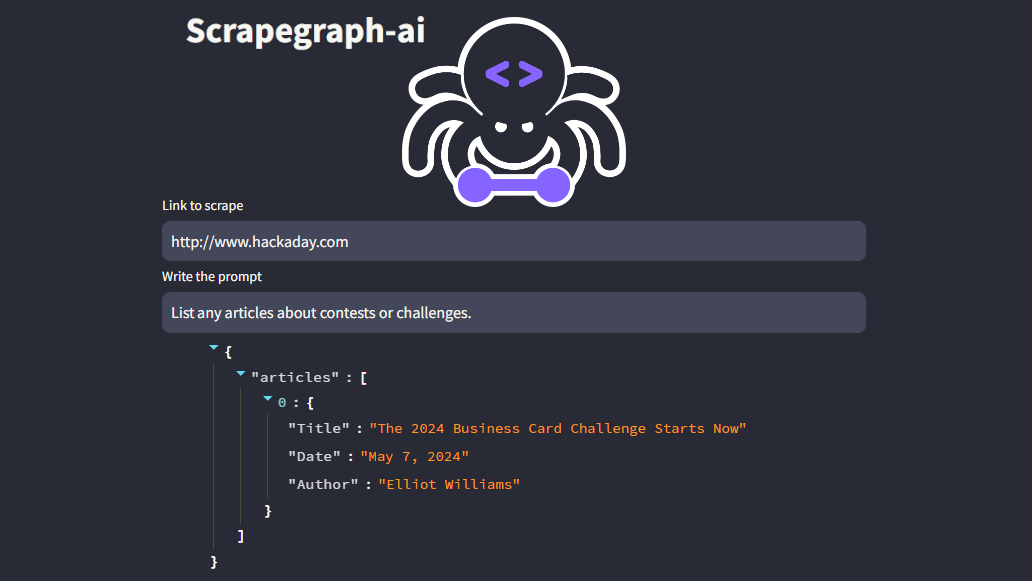One person like that
#api
2 Likes
What's inside the QR code menu at this cafe? - by peabee
#api #design #programming #cybersecurity
Good grief, talk about a bad API design that relies only on good intentions...
https://peabee.substack.com/p/whats-inside-the-qr-code-menu-at
One person like that
1 Comments
One person like that
Pedestal 9 - API that does nothing
#Clojure #Programming #WebDevelopment #Pedestal #Computers #Software #API
One person like that
LibreTranslate
Free and Open Source Machine Translation API, entirely self-hosted. Unlike other APIs, it doesn’t rely on proprietary providers such as Google or Azure to perform translations. Instead, its translation engine is powered by the open source Argos Translate library.
API de traduction automatique libre et ouverte, entièrement auto-hébergé. Contrairement à d’autres API, il ne compte pas sur des fournisseurs propriétaires tels que Google ou Azure pour effectuer des traductions. Au lieu de cela, son moteur de traduction est alimenté par la bibliothèque libre Argos Translate.
#translate #translation #traduction #traduire #API #ArgosTranslate #LibreTranslate #free #opensource #logiciellibre
4 Likes
4 Shares
Google Has Been Lying About Their Search Results
Recent google API documentation leak that revealed Google has been lying about how they rank search metrics. The leak proves that Google does sandbox new sites, they do track clicks and time spent on sites, and they still use site authority to rank websites. And they Do Use Chrome and Chrome based Browsers to Feed them information to affect results.
#SearchEngines #ChromeBrowsers #Google #GoogleSearch #API #SearchMetrics
6 Likes
1 Comments
You can deactivate #Microsoft #Defender via secret #API 😑
2 Likes
2 Shares
One person like that
3 Likes
1 Shares
3 Likes
Is there a free #weather #api which can be accessed with #microcontrollers (esp8266 for example) which doesn't require payment and/or registration?
3 Likes
4 Comments
It took way longer than it should have, but I eventually built a Dovecot plugin that adds support for SCRYPT (a password hashing algorithm). My poor cloud servers take too long to compute ARGON2 hashes (which are harder to attack than other algorithms), hence the plugin.
Some kind soul already wrote the code, but it didn’t work on modern versions of Dovecot, and I wanted it built into a Debian package I could add on to a Dovecot in a Docker image. So off to work.
Gitea has a built-in repository for Debian packages, and I used its Gitea Actions to automate the build, packaging and uploading, then I tweaked my Dovecot image to include my new repository and install the plugin from there.
I never built a Debian package before; it turns out that they’re quite simple most of the time, just the files/directories you want to install and some metadata files to indicate dependencies, architectures, versions, etc.
The hardest bit was understanding the API change and fixing the code. Along the way I learned more about Linux libraries and the tools for inspecting them.
All in all it was a fun side project to tackle. I learned the #Dovecot #API, #LibSodium, #Gitea Actions, #Linux libraries, and #Debian packaging. Not a bad way to spend a slow time in my work schedule.
7 Likes
5 Comments
1 Shares
Report that ``a stranger obtained my #email address from a large-scale language model installed in #ChatGPT
source: https://gigazine.net/gsc_news/en/20231225-chatgpt-model-delivered-email-personal-information
However, rather than using ChatGPT's standard interface, Chu's research team used an #API provided for external developers to interact with GPT-3.5 Turbo and fine-tune the model for professional use. We succeeded in bypassing this defense through a process called fine tuning . Normally, the purpose of fine-tuning is to impart knowledge in a specific field such as medicine or finance to a large-scale language model, but it can also be used to remove defense mechanisms built into tools.
#security #privacy #ai #technology #problem #news #openAI #exploit
4 Likes
6 Comments
1 Shares
#Linkwarden is a self-hosted, #OpenSource collaborative #bookmark manager
source: https://github.com/linkwarden/linkwarden
Features
📸 Auto capture a screenshot, #PDF, and readable view of each webpage.
🏛️ Send your webpage to #Wayback Machine (archive.org) for a snapshot. (Optional)
📂 Organize links by collection, name, description and multiple tags.
👥 Collaborate on gathering links in a collection.
🔐 Customize the permissions of each member.
🌐 Share your collected links with the world.
📌 Pin your favorite links to dashboard.
🔍 Full text search, filter and sort for easy retrieval.
📱 Responsive design and supports most modern browsers.
🌓 Dark/Light mode support.
🧩 Browser extension, managed by the community. Star it here!
⬇️ Import your bookmarks from other browsers.
⚡️ Powerful #API.

6 Likes
1 Comments
2 Likes
One person like that
5 Likes
2 Comments











